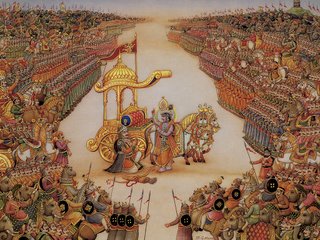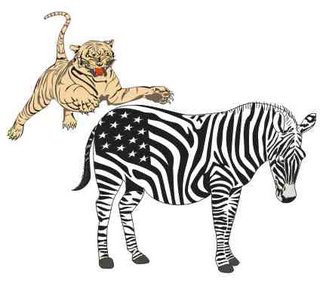In a practical realm, every situation is the sum of its empirical pros and cons. In my opinion which is from a Utilitarian’s Point of View, any action taken is on finer side if it; in terms of Value Addition, provides significant gains to the majority, without any significant harm done to the minority. We just can not blindly apply “IDEAL RULES” to any situation. Weighing down pros Vs cons vis-à-vis the bigger picture, should decide the course of action. After all, it is all about understanding the bigger picture in terms of pluralistic good and making the right choices to strike a balance on the finer side and if it involves things against ethics - established good practices that is what I would call them, then outcome of the situation and its longer term repercussions should be well thought of and given the highest priority & weightage.
For example,
1. We have laws to execute a serial killer and we did and are practicing the laws, why? Because we are talking of killing someone whose life can cause greater harm to society than his death. A perfect example would be “Geeta” (Guys, stop guessing, I am talking about “Bhagwad Geeta” (Song of the Lord)), to establish a kingdom of good deeds, Lord Krishna coaxes Arjuna to kill his relatives & kins.

2. We often end up bribing the decision maker in a business environment, why? Because if you won’t, you might not be able to generate & bring business to your organization and 100-1000s of your fellow employees working around the globe will lose their job.
3. How about talking profit at any cost? Highly expensive medicines could be an example here. AIDS drugs are expensive and unaffordable in African nations where the people afflicted have no money to buy food. But still big pharmaceutical companies (which I won’t name, since this is a public domain. To know more about them, please follow WTO Patent Rights Negotiations) want to make big bucks out of their patented or invention rights. So is it wrong if a country like India producing the same drugs in bulk by violating patent rights to supply to its own AID victims & surplus to African Nations to combat the AIDS epidemic? Is it a form of stealing, I don’t think so. For me, it’s a perfect act.
I was just watching “Syriana” with my friend and one of the memorable dialogues is still lingering in my head and it is about Corruption!!
"Corruption? Corruption ain't nothing more than government intrusion into market efficiencies in the form of regulation. That's Milton Friedman. He got a goddamn Nobel Prize. We have laws against it precisely so we can get away with it. Corruption is our protection. Corruption is what keeps us
safe and warm. Corruption is why you and I are prancing around here instead of fighting each other for scraps of meat out in the streets. Corruption is why we win."
 I just thought, Isn’t it true? The last sentence is very important. We live in the age of cut-throat competition created by the market economies of capitalistic societies where it is all about Winning and Losing. We are in the Peter Drucker’s “Survival of the fittest” times where unfortunately, we don’t co-operate but we compete to survive.
I just thought, Isn’t it true? The last sentence is very important. We live in the age of cut-throat competition created by the market economies of capitalistic societies where it is all about Winning and Losing. We are in the Peter Drucker’s “Survival of the fittest” times where unfortunately, we don’t co-operate but we compete to survive.
 It says & means a lot. Nothing is & won't be ideal & perfect, and if it is, then earth would be heaven and all of us would be angels but we all know that it is not the reality. Everyone can't be happy, there will be clashes & conflicts based on DESIRES & INTERESTS pursued by individuals, groups, states, nations. In order to resolve these conflicts, we have to make compromises & sacrifices and take actions which might contradict to the significance of “Protected Values” for the overall good; be it within your own organization or outside the organization and on a broader level in life and society.
It says & means a lot. Nothing is & won't be ideal & perfect, and if it is, then earth would be heaven and all of us would be angels but we all know that it is not the reality. Everyone can't be happy, there will be clashes & conflicts based on DESIRES & INTERESTS pursued by individuals, groups, states, nations. In order to resolve these conflicts, we have to make compromises & sacrifices and take actions which might contradict to the significance of “Protected Values” for the overall good; be it within your own organization or outside the organization and on a broader level in life and society.
This is a very broad subject and I can go on writing but this is a blog not a book, so I will leave it to you to think & interpret and make your own judgment on this issue.
The choice is at last upto the person, even Arjun had the final decision with himself to fight, and took the choice.
I like the statement on corruption, too good.
The justification of corruption itself on any basis gain to majority is nothing but unability to resist the trends.
The comparision of Bhagdvadgita to the current situation corruption is improper. The lord Krishana motivated Arjuna to fight against the evils whereas here you are promoting the evil nature of corruptinist.
The title "Ethics" doesnt suit the blog as this term has very broader range. Ehtic invloves your social as well as personal behaviour. "Corruption" would have been teh better name.
The blog is resticted only to corporate corruption. But in the currcnt scenerio, the society is severly suffering from political corruption. In my opinion the blog lacks the core issues.
Anyways, the content is good to read but doesnt come to any conclusion. I will apprciate if the bloger comes up with new ideas and comments to these comments.
The blog is to initiate a thought process in each individual and not to come to a conclusion and voice his opinions on what is right and wrong. This is just the start of a thought process which should ideally snowball into a major change in our chalta-hai attitude towards corruption in all forms
<< Home


